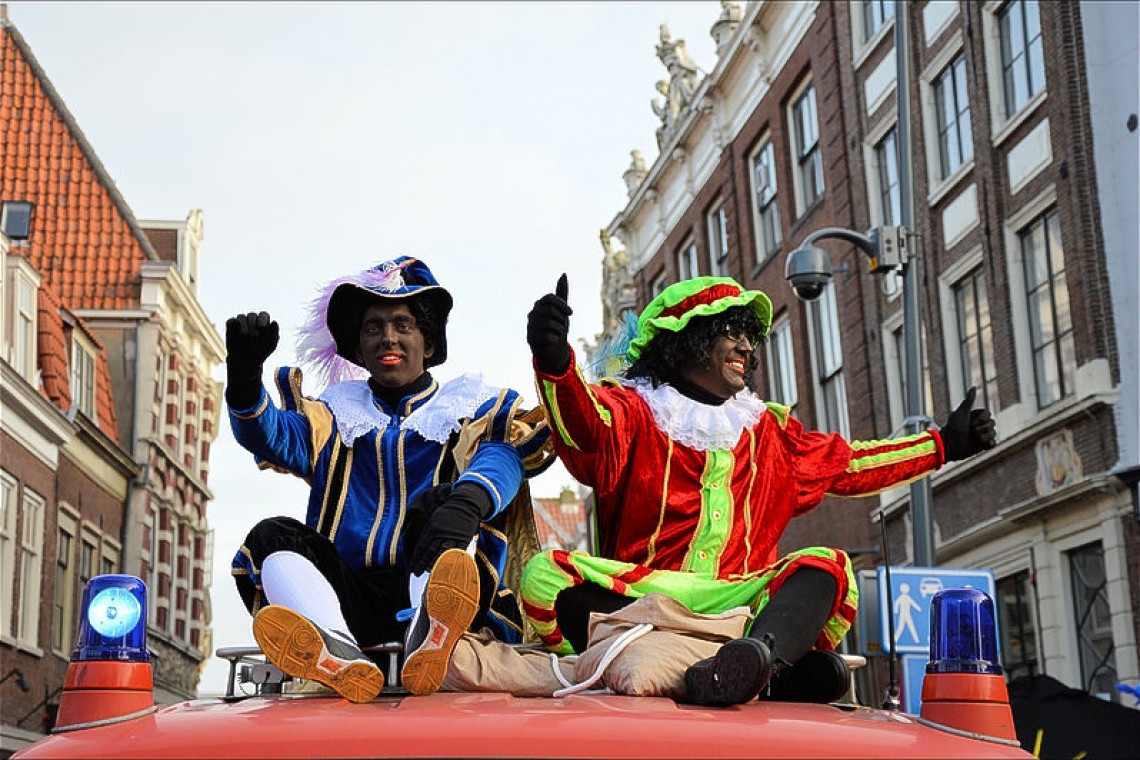Black Pete, the controversial sidekick of St. Nicholas, is traditionally performed in the Netherlands by a white person in blackface makeup.
THE HAGUE--One day after stating that racism is a problem in the Netherlands, Prime Minister Mark Rutte has now admitted to altering his views on Zwarte Piet (“Black Pete”), the controversial sidekick of Sinterklaas (“St. Nicholas”) who is traditionally performed by a white person in blackface makeup.
During a debate in the Dutch Parliament on Thursday evening, Rutte said his perspective on Zwarte Piet had undergone major changes.
“I was part of the group that said Zwarte Piet is black,” Rutte said. “I’ve said it often enough here [in Parliament – Ed.]” He went on to say that he had met many people “with dark skins” who said they feel discriminated against because Zwarte Piet is black. “That is the last thing we want during the Sinterklaas celebrations,” Rutte said.
On the other hand, there are people who do not want to be forced into change, and it is not the government’s job to make this happen, Rutte, who has admitted playing Black Pete in the past, told Members of the Dutch Parliament.
However, he said, he expected that in a few years there will be almost no black-faced Petes anymore. “This is a folk culture which changes in time under pressure from debate in society,” the prime minister said.
Rutte’s change of heart has been welcomed by anti-Zwarte Piet campaigners, including Jerry Afriyie. “Better late than never,” Afriyie said. ‘Now let us get rid of Zwarte Piet and we can all enjoy a party for all children.”
Rutte first broached the question of racism in the Netherlands on Wednesday in reply to reporters’ questions about the unrest in the United States following the death of George Floyd in Minnesota.
“There are people in the Netherlands too who are judged not on their future but on their past, their background, who are spoken to not as individuals but because of the group they come from, not for their behaviour but for their religious beliefs,” Rutte said. “It happens in the Netherlands as well. It affects a lot of people in this country.”
More complaints were made last year to the various Dutch organisations that collect statistics about discrimination, according to a report compiled on behalf of the police and the Ministry of Home Affairs and Kingdom Relations in April.
In total, nearly 10,000 complaints were made to the police and other agencies, around 42 per cent of which related to people’s ethnicity.







